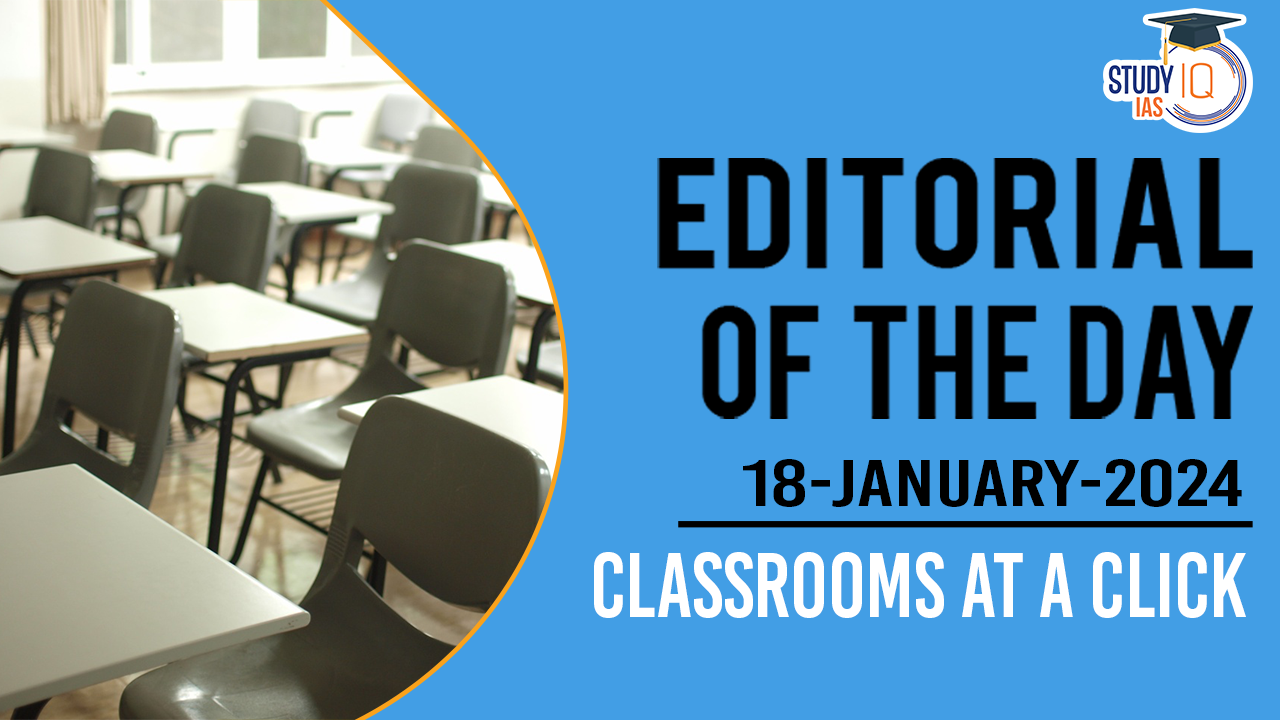Table of Contents
Context: Despite tech advancements like smartphones in every house, Indian education still faces barriers.
Evolution Of Education Tools In India
- Transition from hope in computers and the internet to enable anytime-anywhere education.
- The shift from laptops to smartphones as the primary educational tool.
- From electronic devices replacing books to smartphones becoming ubiquitous in surveys of 14-18-year-olds.
- About 89% of surveyed youth have access to a smartphone, with 92% believing that they can use it for education.
- Despite ownership, only two-thirds actually used the smartphone for their studies the week before the survey.
We’re now on WhatsApp. Click to Join
Challenges
- Technology and education:
- Focus on exam preparation: Existing educational technology, including AI-based tutoring programs, focuses primarily on preparing students for exams, neglecting broader learning goals.
- Barriers To Technology Integration: The technological divide still exists due to a lack of knowledge and barriers to the availability of technology. The traditional education system is not equipped for mass integration of smartphones. The process of integrating technology into education is still slow and steeped in outdated practices..
- Education System:
- Limited flexibility: The formal education system lacks flexibility for individuals to enter/re-enter or study while working, particularly for underprivileged groups.
- Inadequate non-formal education: There is a lack of accessible non-formal education options to supplement formal education or cater to diverse needs, such as agriculture training for rural communities.
- Rigid structures: Traditional classroom settings and institutions limit the potential for innovative learning approaches and personalised education.
- Shifting student needs:
- Diversifying life goals: Increasingly, students pursue life goals beyond academic success, demanding an education system that supports diverse aspirations and skills development.
- Changing job market: The evolving job market requires training in advanced skills and knowledge beyond traditional academic subjects.
Suggestive Measures
- Opportunities for Open Schooling: Open schooling and digital education present opportunities for flexible learning.
- The need for a system that allows for studying while working and earning a living is highlighted.
- Open schooling could lead to decentralised and strengthened rapid development of technology in education.
- Need for Diverse Educational Models: There is a need for non-formal education to supplement the formal process.
- Diverse educational needs arise from the wide spectrum of children’s backgrounds, interests, and the pace of learning.
- Agricultural Education and Employment: Agriculture employs 50% of India’s workforce and represents a significant portion of the working age group in the ASER 2023 survey.
- There is a call for formally training youth in agriculture, to provide skills and knowledge that traditional education systems often do not focus on.
- The Importance of Inclusive Learning: The need for education to be inclusive, covering subjects like environment and climate.
- There is a growing awareness about the importance of learning about agriculture and environmental issues for the younger population.


 International Sports Day for Peace and D...
International Sports Day for Peace and D...
 Child Adoption in India, Process and Cha...
Child Adoption in India, Process and Cha...
 Sangeet Natak Akademi Awards Winners Lis...
Sangeet Natak Akademi Awards Winners Lis...





















